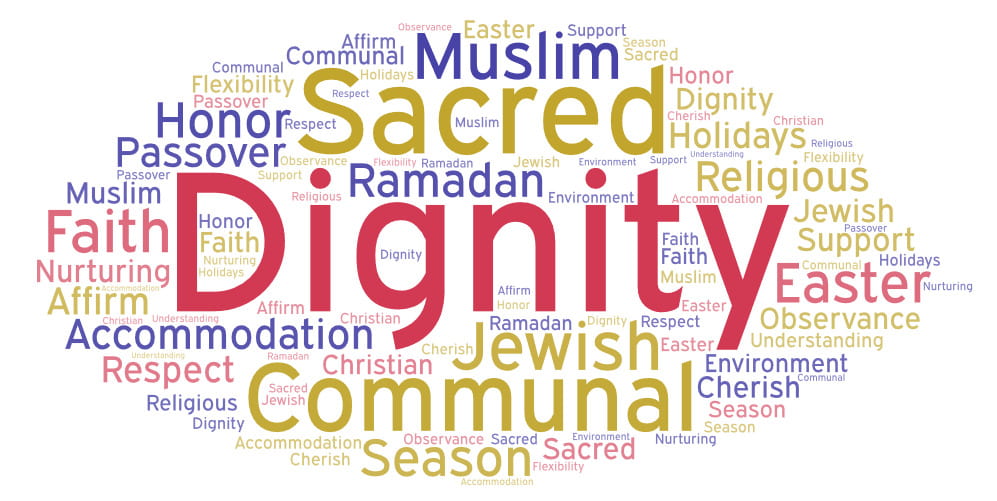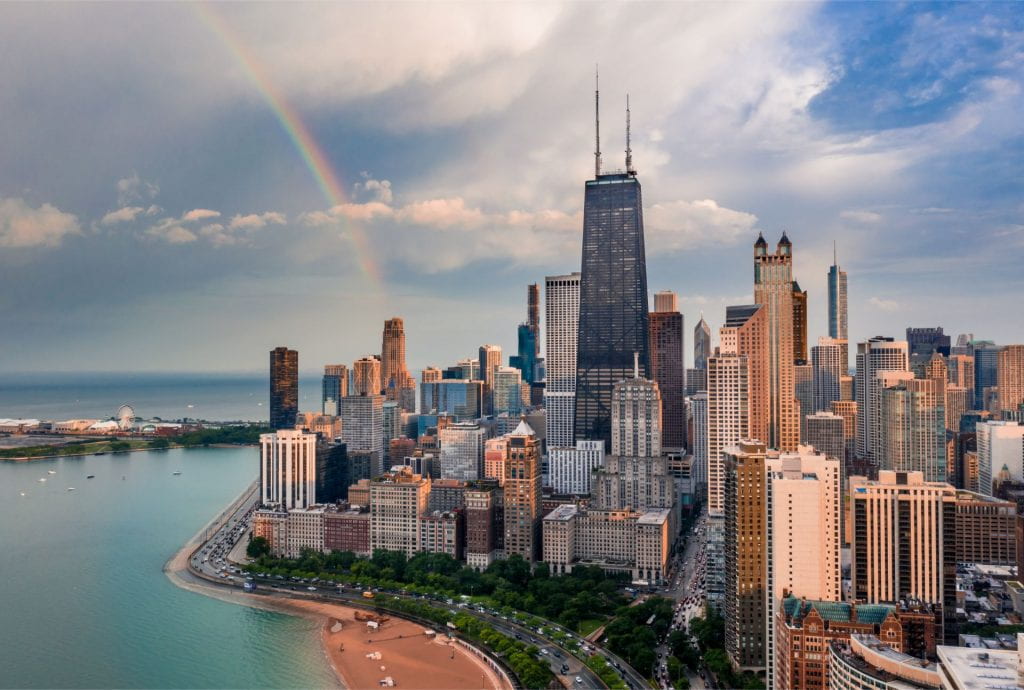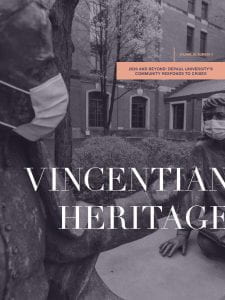 More than four hundred years ago in the small French town of Folleville, France, Saint Vincent de Paul had a transformative experience that he would later describe as the start of the Vincentian mission, which we continue to this day.[1] While serving as a tutor and spiritual director for the wealthy de Gondi family Vincent was called to the bedside of a dying peasant. The opportunity to facilitate the sacrament of confession and the profound positive effect it had on the man revealed much to Vincent about the conditions and human needs that were widespread in his time. When Madame de Gondi famously asked, “What must be done?” the mission had begun.
More than four hundred years ago in the small French town of Folleville, France, Saint Vincent de Paul had a transformative experience that he would later describe as the start of the Vincentian mission, which we continue to this day.[1] While serving as a tutor and spiritual director for the wealthy de Gondi family Vincent was called to the bedside of a dying peasant. The opportunity to facilitate the sacrament of confession and the profound positive effect it had on the man revealed much to Vincent about the conditions and human needs that were widespread in his time. When Madame de Gondi famously asked, “What must be done?” the mission had begun.
The Vincentian mission to honor the sacred dignity of every human being has taken many different shapes in many different environments over the last four hundred years. It is a living legacy that seeks to serve the same goals and purposes in ever-changing circumstances. DePaul University seeks primarily to advance the dignity of every person through higher education, but in doing so, we serve the whole person and the larger community. We find and serve not only the material needs of people but their spiritual needs as well. It is because of, not despite, our commitment to our Vincentian Catholic mission that we honor the spiritual needs of all in our community, inclusive of people of all faiths and none.
Much of our Christian community has just come to the end of the Lenten period with the celebration of Easter.[2] Our Jewish community has begun the observance of Passover. Our Muslim community is in the middle of the fasting month of Ramadan. Others observing sacred holidays during this season this year include the Sikh, Jain, and Baha’i communities. We remind ourselves of Dr. Esteban’s call in the fall to “create an accepting and nurturing environment in which people of every faith are supported and nurtured.”[3] Just as our university closes for Good Friday to facilitate Christians’ observance, we encourage all members of the community to be flexible and accommodating so that people can engage in religious observances and spiritual growth. Doing so enriches and inspires the entire community, as our own Father Memo Campuzano beautifully shared last week.[4] The spirit of accommodation and the honoring of human dignity invites conversation among people about their needs, recognizing that not everyone is the same and all are equally precious. The staff of the Office of Religious Diversity and Pastoral Care is here to serve as a resource whenever we can be helpful in such dialogue.[5]
We invite all of our community to find, as Vincent did, life and beauty in honoring and facilitating the sacred traditions and spiritual needs of each other. Many of us are weighed down by the hardships or just the daily grind of life. We seek these special observances to provide joy and meaning to our lives, as individuals and as communities. Being able to facilitate these moments for others provides a special blessing of its own. The Prophet Muhammad[6] offered this beautiful prayer for those who would provide food for him when it came time to break the fast, “May those who are fasting break their fast with you, may the righteous eat your food, and may the angels pray for you!”[7]
Reflection by: Abdul-Malik Ryan, Assistant Director, Religious Diversity and Pastoral Care
[1] Andrew Rea, “The 400th Anniversary of St. Vincent de Paul’s Sermon at Folleville,” DePaul University, January 25, 2017, https://news.library.depaul.press/full-text/2017/01/25/4809/.
[2] Orthodox Christians will observe Easter on April 24.
[3] A. Gabriel Esteban, “Religious Observances: Facilitating a Culture of Respect, Understanding and Civility,” DePaul University Newsline, August 31, 2021, https://resources.depaul.edu/newsline/sections/campus-and-community/Pages/Religious-observances-2021.aspx.
[4] Memo Campuzano, C.M., “Spiritual Times: Times When We Hope Together,” The Way of Wisdom (blog), DePaul University, April 8, 2022, https://blogs.depaul.edu/dmm/2022/04/08/spiritual-times-times-when-we-hope-together/.
[5] Contact information and a calendar of holidays and religiously significant events can be found here: https://offices.depaul.edu/mission-ministry/religious-spiritual-life/religious/Documents/2021-2022_Religious_Holidays_Calendar.pdf.
[6] Peace and blessings be upon him and all of the prophets and sacred teachers and guides.
[7] Hadith reported by Abu Dawud.







